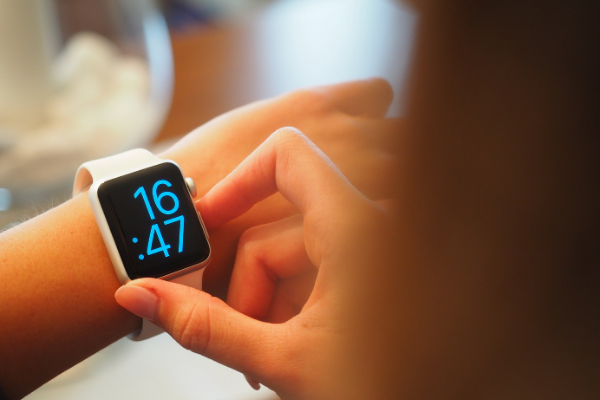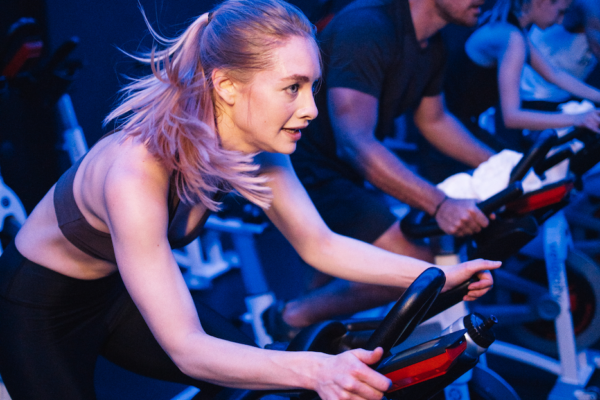What’s the Best Time of Day to Exercise According to Science.
by Betty – Friday, 4. September 2020
What’s the Best Time of Day to Exercise?
The biggest challenge to exercising can be finding a time that works best with everything else you have to juggle daily. But should you also consider the best time of day to maximize your performance levels? Boost your sleep quality? Or decrease the chances of injury?
Here are some potential benefits (and drawbacks) of exercising at different times of the day:
Why Mornings?

Who wouldn’t love to start the day with endorphins and a sense of accomplishment?
- Unlike the afternoons and evenings, you are less likely to skip a morning workout due to unexpected obligations. If you have trouble with being consistent, then mornings might be the best time for you to exercise.
- If you suffer from insomnia, best to switch your workouts to mornings. After a morning workout, you experience the post-workout heart rate and body temperature increase throughout the day. Not when you are getting to bed for a good night’s sleep.
In addition, regularly waking up early may shift your internal body clock. This makes you more alert in the mornings (easier to wake up for future morning workouts) and more tired earlier in the evening.
- Exercise can burn up to 20% more fat when done on an empty stomach. Your body has elevated levels of cortisol and growth hormones in the morning, a professor of Exercise Physiology & Nutrition explains. This means you have a hormonal profile predisposed to metabolise fat, and you will draw more of your energy from fat reserves instead of your most recent meal.
Why Afternoons or Evenings?

If you are really not a morning person, sleeping in and using your lunch break or evenings to exercise might be the right move for you.
- Having already eaten a meal that day, an afternoon or evening workout will increase your blood glucose levels and give you a performance boost.
- Additionally, your body temperature increases throughout the day and improves your muscles’ functions and flexibility. Bonus: you need less time warming up before exercising and can fit in a quicker sweat session.
- A study has also shown that your body produces more testosterone, an important hormone for building muscle in both men and women, during afternoon workouts compared to morning workouts. So it might be more effective to schedule your resistance training during your lunch breaks.
- The same goes for sports that require quick response and movements (eg. basketball, tennis) as a late afternoon session is associated with better reaction times, making you less prone to injury.
- Although there is the common perception that working out at night can disrupt your sleep, that generally applies to intense exercises (think CrossFit). There is a study that shows if the exercise is done early in the evening, it has no negative effect on sleep. Low-intensity exercises such as yoga and meditation in the evenings can actually help you with better sleep.
Following your body’s internal clock
Circadian rhythm is our internal body clock influenced by the 24-hour pattern of the Earth’s rotation. It affects factors such as heart rate, body temperature, blood pressure, and hormones. All these govern our alertness, tiredness, and general physical performance.
According to a study of athletes, time since waking was a bigger predictor of peak performance compared to the time of the day. So knowing when your body operates best is a good way of achieving your performance peak. You can find this out by simply doing a few sessions in the mornings, afternoons, as well as evenings to find out what feels best for your body.
Final Verdict?

The science of what time is the best time to exercise is not clear cut. There are benefits to morning, afternoon, and evening sessions. If you have flexibility in your schedule, choose the time of day that best optimizes your fitness goals.
However, the benefits of working out consistently far outweigh any marginal benefits of what time of the day you do it. So the best time of the day to exercise is whenever you can!



Meet the New Faces Behind Our Power Team
/in Health, Lifestyle, Living in Zug, Living in Zurich, Power/by Casey3 Ways to Push Through a Tough Workout
/in Health, Lifestyle, Living in Zug, Living in Zurich, Power, Rides/by CaseyMeet Your New Power Coach, Julia
/in Health, Lifestyle, Living in Zug, Living in Zurich, Power, Rides/by Casey